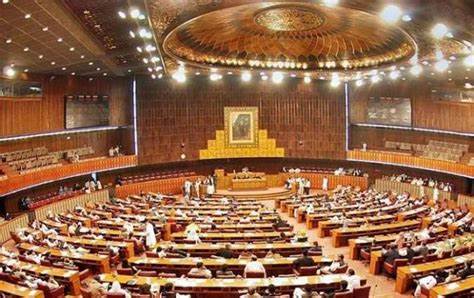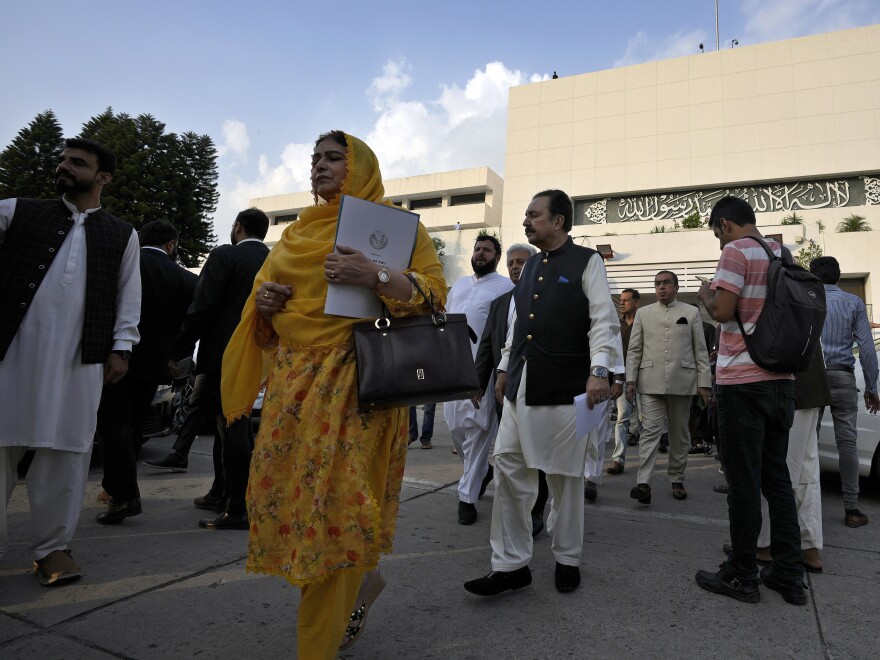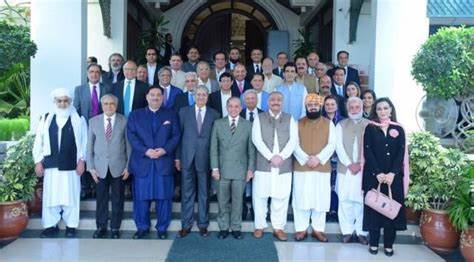The president dissolved Pakistan’s parliament late Wednesday night on the advice of Prime Minister Shehbaz Sharif, according to the president’s office, laying the stage for a national election amidst political and economic turmoil.
The National Assembly was dissolved in accordance with Article 58 of the Constitution, according to the Aiwan-i-Sadr’s notice of the dissolution of the assembly.
The coalition government led by the Pakistan Muslim League-Nawaz (PML-N) would have preferred to stay in power for a few more days and dissolve Parliament on August 11, but it worries that President Alvi, a former leader of imprisoned former prime minister Imran Khan’s Pakistan Tehreek-e-Insaf (PTI) party, might decline to do so right away.
The recommendation came three days before the end of the five-year term of the parliament, which is on August 12. Following that, new elections will be held in 90 days under a caretaker administration chosen by Sharif and a member of the departing parliament from the opposition.

According to a statement from President Arif Alvi’s office, he disbanded the legislators as the assembly’s five-year term was coming to an end on the advice of Shehbaz Sharif, the nation’s prime minister.
Elections would be held within 90 days following the assembly’s premature dissolution by Pakistan’s Election Commission (ECP). The elections would have taken place within 60 days if the National Assembly had completed its constitutional term, but they must happen within 90 days if it was dissolved before it was supposed to.
Delimitation must be completed by the ECP within 120 days, after which the election timetable must be made public. The election commission is about to begin redistricting hundreds of constituencies based on a new census, which might cause the vote to be delayed by several months.
Although it is technically possible to speed up the process, decide constituency delimitation in the shortest amount of time, and hold elections within 90 days, it is unclear if the ECP will adhere to the deadline since it has a good reason to go over it.
The 15th National Assembly, which is already adjourning, started its five-year term on August 13, 2018, when a speaker and deputy speaker were chosen. The assembly was chosen following a vote on July 25, 2018.
According to Article 224-A of the Constitution, a process to appoint a caretaker prime minister will start following the dissolution of the National Assembly.
The party of cricketer-turned-politician Imran Khan, who was sworn in as prime minister for the first-time days later, won the most recent general election, which took place in July 2018.
Since he was dismissed as prime minister in a vote of no-confidence last year, Khan has been at the center of political unrest, raising questions about the stability of Pakistan. He was later found guilty of graft and sentenced to prison; as a result, he was disqualified from running in elections for five years.
Khan has claimed that his removal was caused by the ruthless military, which has ruled Pakistan since its independence in 1947. The claim has been denied by the military.

Khan was replaced by Sharif, who has been facing a crippling economic crisis and historically high levels of inflation as the government enacted difficult reforms to obtain assistance from the International Monetary Fund (IMF).
The interim prime minister’s name will be finalized after discussions between Prime Minister Sharif and Raja Riaz, the leader of the opposition in the National Assembly.
The topic will be referred to the parliamentary committee for the selection of the caretaker prime minister if they are unable to agree on a name within three days.
According to the law, the prime minister and the leader of the opposition would submit to the parliamentary committee their respective names for the coveted job.
Within three days, the parliamentary committee must decide on the caretaker prime minister’s name; if it is unable to do so, the Election Commission of Pakistan (ECP) will choose the interim leader from among the names put forth by the government and the opposition.












